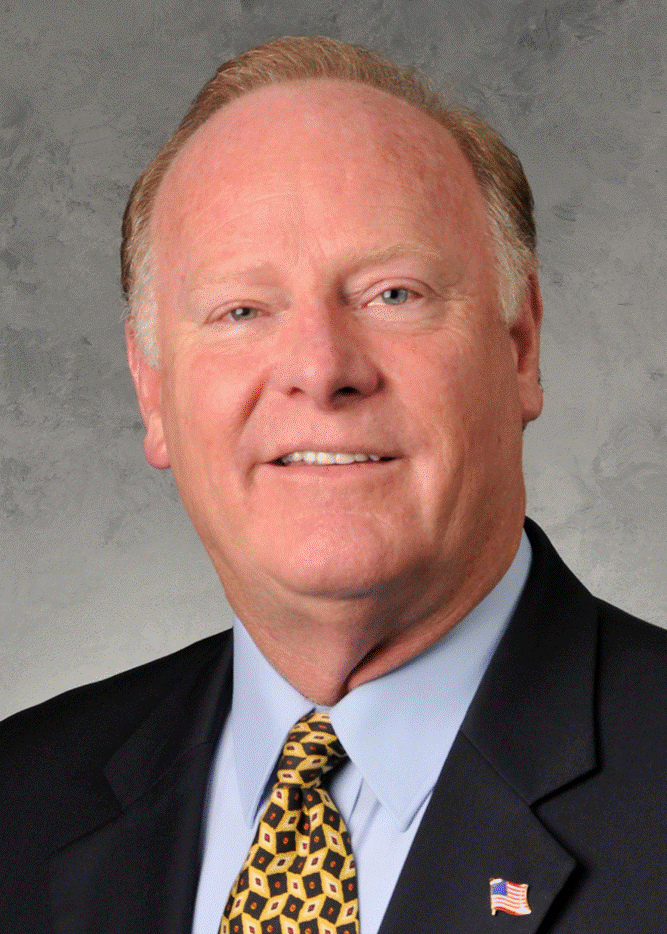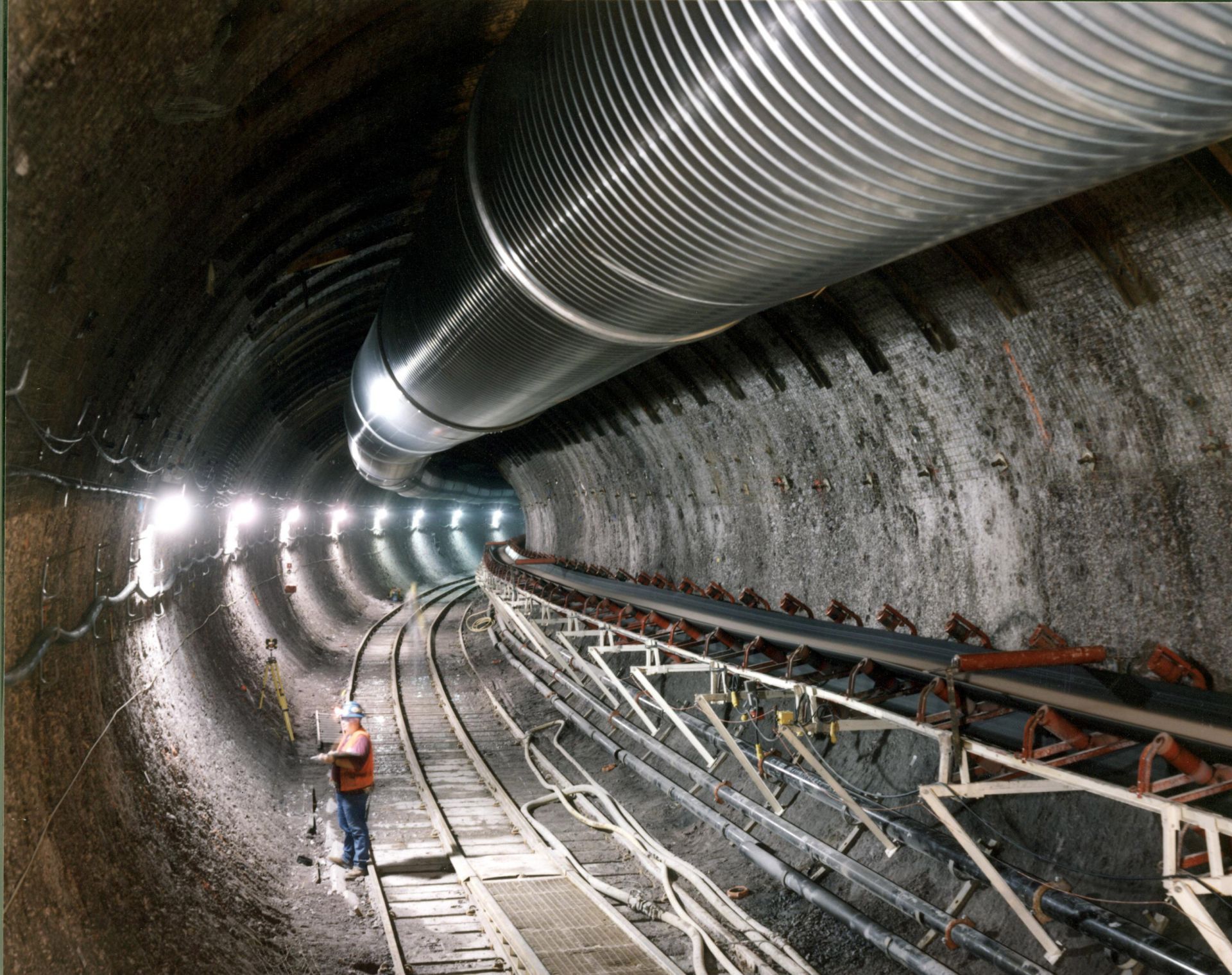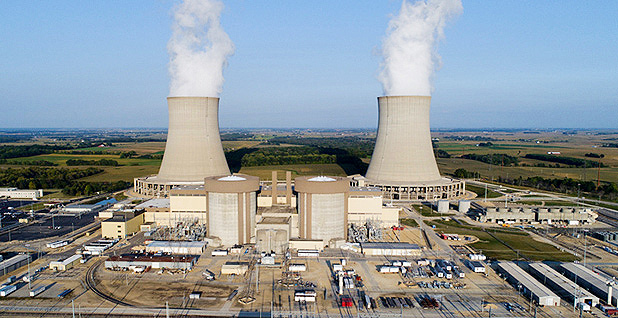A screen capture from the video "Finland Might Have Solved Nuclear Power’s Biggest Problem" on YouTube.
A new video, Finland Might Have Solved Nuclear Power’s Biggest Problem, debuted on YouTube this morning and has been seen already by a large number of viewers. The video takes a look at Finland’s efforts to lessen its reliance on foreign energy and meet its goal of carbon neutrality by 2035 with nuclear power, as well as to provide a solution to the problem of spent nuclear fuel.
A U.S. Navy Surface Ship Support Barge (the large vessel in photo), which is used to refuel nuclear-powered ships and dismantle spent fuel units, will be scrapped in a three-year process. (Photo: Stripes.com)
Towed from its home in Newport News, Va., the U.S. Navy’s Surface Ship Support Barge has arrived in Mobile, Ala., for decommissioning, Advance Local Alabama reported on June 1. The 268-foot-long barge operated from 1964 to 2016, supporting the Navy's nuclear vessel refueling and functioning like a spent fuel pool at a commercial nuclear power plant.
J. Ernest Wilkins Jr. was honored posthumously by the University of Chicago at a special event held on March 2, 2007. (Photo: Dan Dry/Wikimedia Commons)
ANS past president (1974–1975) J. Ernest Wilkins Jr. was featured in a recent History.com article highlighting the unsung contributions that Black scientists made to the Manhattan Project.
The underground Exploratory Studies Facility at Yucca Mountain in Nevada built by the Department of Energy to determine whether the location was suitable as a deep geological nuclear waste repository. Courtesy of the Department of Energy.
It is no secret that the U.S. government’s program to manage and dispose of used nuclear fuel and high-level radioactive waste is in a deep ditch. Private companies continue to safely store used fuel at U.S. nuclear reactor sites, some of which ceased power operations decades ago. Other countries, such as Finland, Sweden, France, Canada, Switzerland, Russia, and China, are moving forward on permanent disposal, while for the past 11 years, the U.S. government has done nothing constructive to discharge its HLW disposal responsibilities. Rather than taking action, successive Congresses and administrations have sat on their collective hands.
The Byron nuclear power plant
Illinois governor J. B. Pritzker’s proposal to subsidize the state’s Byron and Dresden nuclear plants, introduced in legislative form last week, falls short, Exelon Corporation President and Chief Executive Officer Chris Crane said on May 5 during the company’s first-quarter earnings call.
“From what we’ve heard, it’s open to negotiation, but just going from the street analyst opinion and what we’ve seen, its starting point is not adequate to keep the plants’ continued operations going,” Crane stated.
Unit 3 of the Vogtle plant under construction (Photo: Georgia Power)
To reach President Biden’s goal of cutting U.S. carbon emissions in half by 2030 and to have a net-zero carbon economy by 2050, some environmentalists are reconsidering their opposition to nuclear energy’s role as a climate crisis solution. According to the article, The controversial future of nuclear power in the U.S., from National Geographic, nuclear power has a lot going for it. Its carbon footprint is equivalent to wind, less than solar, and orders of magnitude less than coal. Nuclear power plants take up far less space on the landscape than solar or wind farms, and they produce power even at night or on calm days.
The above figure provides NYISO's projected mix of resource capacity expected to be available for the 2021 Summer Capability Period.
The figure below shows the vast difference in 2020 between clean energy provided to upstate New York and to downstate New York. With the recent closure of Indian Point-3, the difference will widen for downstate New York in 2021.
NYISO released its 2021 power trends report for the state of New York. As noted by many in the energy community prior to the closure of Indian Point nuclear power plant's Unit 2 and Unit 3 in 2020 and 2021, respectively, the projected mix of resource capacity expected for downstate New York's energy generation will be heavily reliant on fossil fuels.









 The World Nuclear Association has issued a white paper advising the world’s policymakers and regulators to adopt a science-based, all-hazards risk assessment and management system that holistically evaluates the contributions of different energy sources and sets a level playing field.
The World Nuclear Association has issued a white paper advising the world’s policymakers and regulators to adopt a science-based, all-hazards risk assessment and management system that holistically evaluates the contributions of different energy sources and sets a level playing field.






